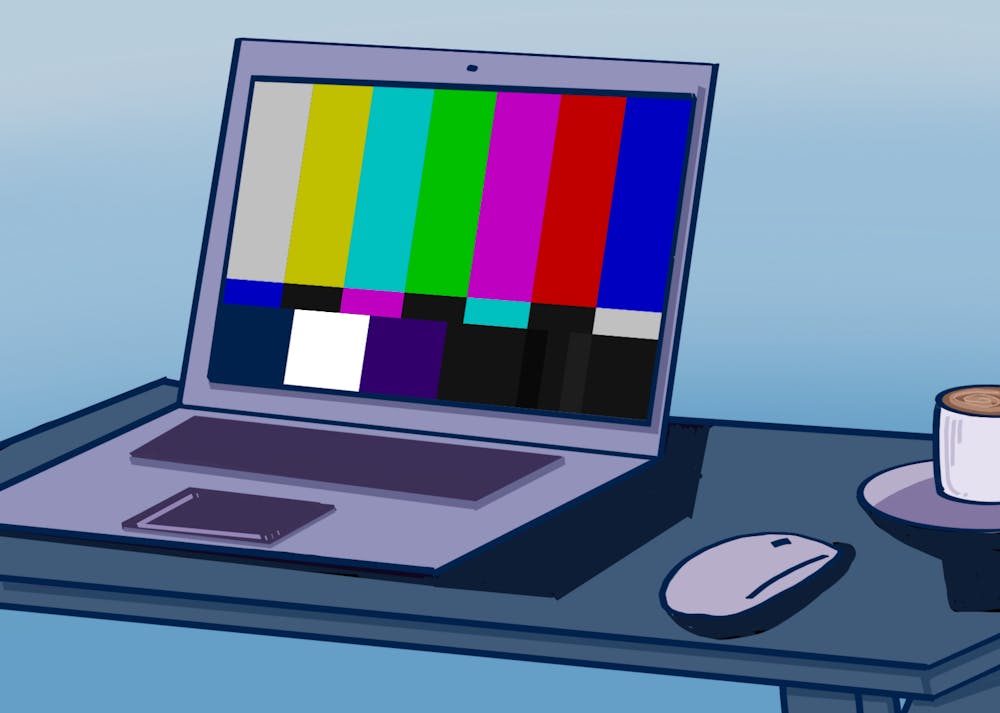A new series comes out on Netflix. Or Hulu. Or HBO Max.
You're really excited about it. The trailer was engaging. The plot looks promising. You like all the actors. Even the theme song is tolerable.
You watch the pilot, and you're hooked.
The universe gives you nine more glorious episodes, each even better than the last. You stay up too late and postpone your homework again, all pretense of self-discipline banished. But you don't care; you're lost in the rapture of cinematic bliss.
And then … it's canceled.
And your faith in the entertainment industry is canceled with it.
I am only able to describe this so vividly because I have fallen prey to this vicious cycle too many times myself. That's right. My name is Marissa, and I have a streaming problem.
Less than a month ago, I suffered my most recent iteration of streaming shock when Showtime canceled its new "American Gigolo" after only one season.
I admit to starting the show only as a result of a crush on the lead actor, Jon Bernthal. But it had a lot going for it. Following the life of a male sex worker framed for murder by his female colleagues, the show made quick work of turning some well-worn tropes on their heads.
One might say that this cancellation shouldn't come as a surprise because of its less than stellar reception. But if that argument held any water, Netflix's "1899" would still be up and running.
A dark, horror-esque period piece following a group of immigrants as they sail to New York, "1899" debuted on Netflix last fall and was met immediately with stellar reviews. During its short-lived heyday, the series reached a peak of 87.89 million viewing hours on the streaming service. This show seemed to have everything going for it. Still, after airing in November 2022 it got the axe in January 2023.
If we can't even trust the most highly rated shows to stick around, where can we turn for dependability?
"I think it lets the viewer down when their favorite show is canceled or stopped after only one season," lamented JP Hanson, a senior studying English. "I was let down when I realized this about (Netflix's) "Everything Sucks!" and (Amazon Prime's) "The Wilds" because there were cliffhanger endings rather than finishing out the story."
Kelly DeVos, a sophomore studying film, echoed this same sentiment.
"How hard would it be to film a finale that addresses unresolved plot points?" said DeVos about "Archive 81," another Netflix series that ended without closure.
"It definitely … makes me more reluctant to try new things," continued DeVos. "I know they finished Seinfeld. Maybe I should bust out the Blu-rays."
An excellent point. When streamers cancel popular shows, or even less popular shows with a loyal cult following, they are eroding trust, and we are much less likely to attempt new shows in the future. Ultimately, streamers are choosing short term gains rather than investing in long term efficacy.
But why? The burning question behind all of these canceled shows and broken hearts is why, Netflix, why?
Is it really as simple as low ratings equal no money, or are there greater politics at play?
Aviva Dove-Viebahn, an assistant professor of film and media studies at ASU, gives us some insight into the machinations of the brave new streaming world.
"It's not the viewers," Dove-Viebahn said emphatically. "What's happening, I think, is that the executives at the networks … are not necessarily giving shows the time they need to fully develop."
Dove-Viebahn went on to discuss the concept of "streaming wars," and how each streamer is fighting for supremacy on our subscription list, since they know we won't subscribe to all of them. This attention economy in which we find ourselves is a much tighter market than we realize.
This might explain the cancellation of "American Gigolo," which was likely not Showtime's decision, but rather collateral damage of a recent merger between Showtime and the streaming service Paramount+.
"I think it is a larger symptom or casualty … of this sort of battle," continued Dove-Viebahn. "What's going to capture the right audiences, and enough audiences? The reason shows get canceled so early is just a symptom of that."
Whether it be the result of streamers' foresight, or the lack thereof, viewers seem to be the true casualties of this war for viewership supremacy.
At any rate, we know one thing for sure. When our favorite stories and characters are canceled, ripped from our lives and released into the fictional ether forever, it hurts. We are left only with unfulfilled hopes, unanswered questions and a boredom-fueled existential crisis.
DeVos summed it up best. "It's almost like a loose contract exists between the viewer and the service. We're doing our part by making these shows popular and the streamer isn't doing theirs."
Edited by Claire van Doren, Reagan Priest and Caera Learmonth.
Reach the reporter at myarmst2@asu.edu.
Like The State Press on Facebook and follow @statepress on Twitter.




